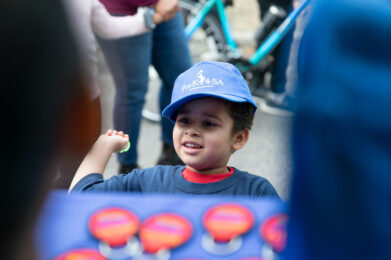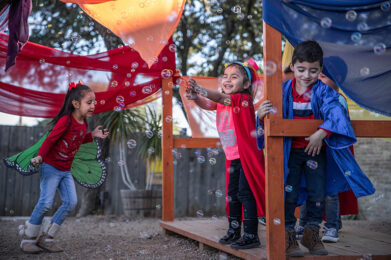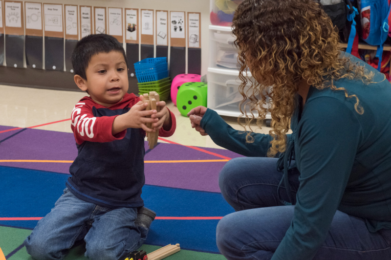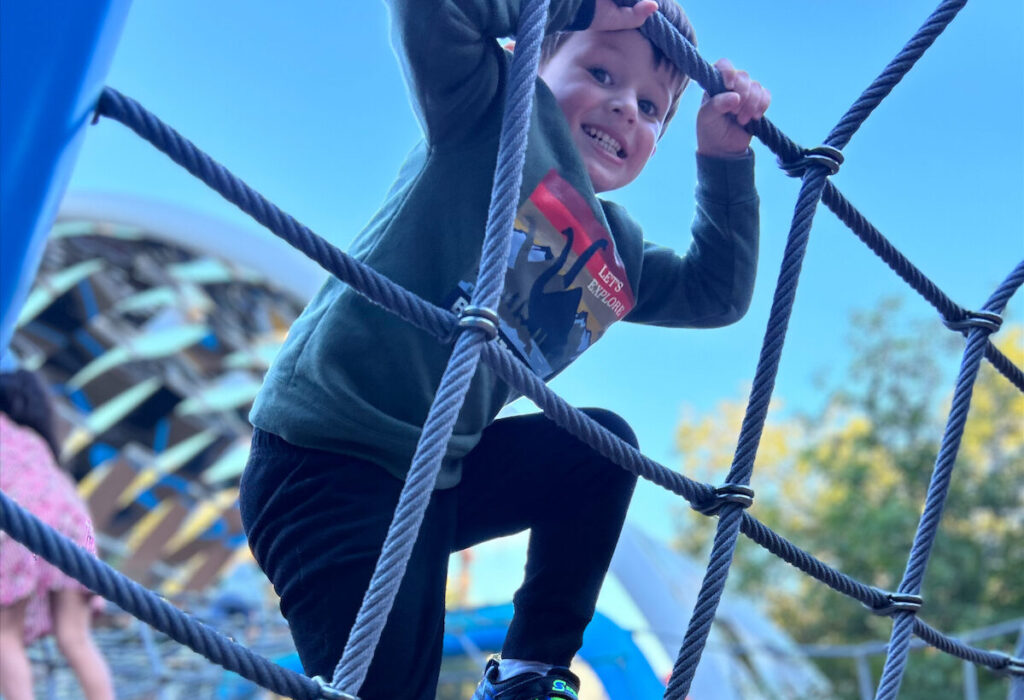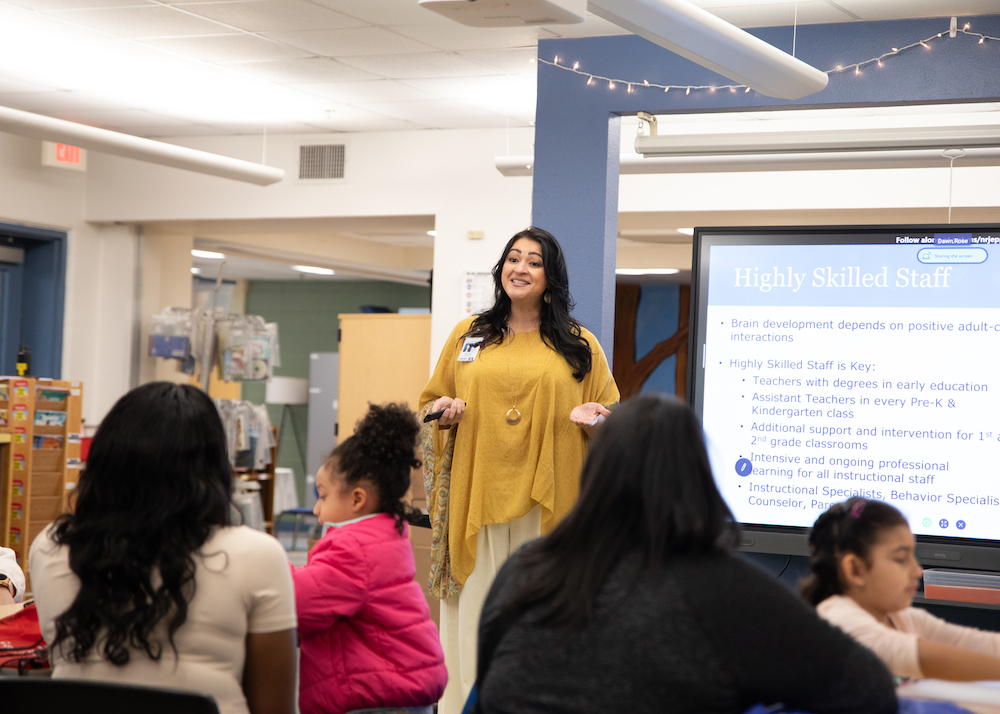Summer is right around the corner, and with it comes the potential for children to experience summer learning loss (SLL), aka the “summer slide” — when students are not in school over the break and could forget some of the knowledge and skills they gained during the previous school year.
One educational study found SLL can be anywhere from 17-34%. This can lead children to experience academic setbacks and challenges heading to the next grade.
Don’t worry; you can stop the slide! Helping your child find and engage in academic activities throughout the summer is an excellent way to set them up for success when they enter their new classroom after the break. Here are four ways your child can avoid losing last year’s progress.

1. Read Every Day
Literacy is the foundation for your child’s success, affecting all areas of their development. Make sure your child is engaging in reading activities over the summer. Reading with your child and discussing what happened in the story is an excellent endeavor to keep their brain engaged.
Our Family Education Specialist, Jessica Cooper, emphasized the importance of reading. “Reading is fundamental for children to grow academically. Discussing the stories you read with your child and asking open-ended questions can expand your child’s vocabulary, comprehension, and social/ emotional learning while preparing them for the next grade.”
Pre-K 4 SA Tip:
The H-E-Buddy Summer Reading Club incentivizes children to read over the summer. They will be rewarded by reading ten books, recording them on a reading log, and having an adult initial the log next to each completed book. For more information about this program, visit the H-E-Buddy Summer Reading Club to see how your family can participate!
2. Visit Museums
San Antonio is home to various world-class museums that provide many educational opportunities for children. The DoSeum is a Pre-K 4 SA favorite because they believe in the power of play and hands-on learning, both core components of our HighScope curriculum.
Created with children in mind,he DoSeum has exhibits focused on STEM, the arts, and literacy, and is a one-stop shop to get your child excited about learning.
They offer a discounted admission price of $3 for families participating in SNAP, WIC, and/or Pandemic-EBT. The first Monday of every month is free to all audiences after general operating hours. Find a complete list of all discounts here and plan your visit today.

3. Try a Math App
Math skills are particularly vulnerable during the summer months, and children need daily practice to maintain proficiency in a difficult subject. Bedtime Math is a free education app from the University of Chicago, available on both Apple and Android devices, that provides daily practice problems — combining literacy and math for an engaging activity.
In the app, a new problem is released daily and provides a short story followed by a math question. There are levels for ages 3-9, providing different options depending on age and skill level. It is a quick, easy way to get practice every day in both math and reading. If one problem a day isn’t enough, don’t worry! An archive of every problem can be explored by topic, so you can find the subject that grabs your child’s attention and will have them asking for more.
Explore all this app offers by visiting their website and start incorporating this fun learning activity into your child’s routine!
4. Go Outside
Outdoor learning is an essential component of the research-based curriculum at Pre-K 4 SA. Children greatly benefit from increased time outside.
“Children spend a lot of time in outdoor learning classrooms as a part of their daily schedule. Continuing this outdoor learning time over the summer helps children develop an appreciation for nature and create a sense of wonder about the world around them,” said Jessica.
Outdoor learning classrooms help their academic performance, and research shows it also positively affects their mental and social health. While the Texas summer heat can be a challenge, the City of San Antonio has a free and fun solution — the Parks and Recreation Department has splash pads located at various parks around the city that help your child keep cool, keep having fun, and keep learning.
While playing at a splash pad, young children develop social and emotional skills through impromptu games with others. They can identify cause and effect, with different-sized instruments taking longer to fill and spill. They can also improve motor skills, avoiding streams and dodging water sprays. Math abilities even come into play when children count to calculate the timing of water shooting out of the various devices. Visit the City of San Antonio’s Parks and Recreation Department to find a splash pad near you!
Continued learning over the summer break is critical for your child’s success in the upcoming school year. Preventing a regression in academic and social skills sets your scholar up for success when they enter school on the first day. Enjoy a stellar summer, and be sure to incorporate learning into your child’s daily schedule!
